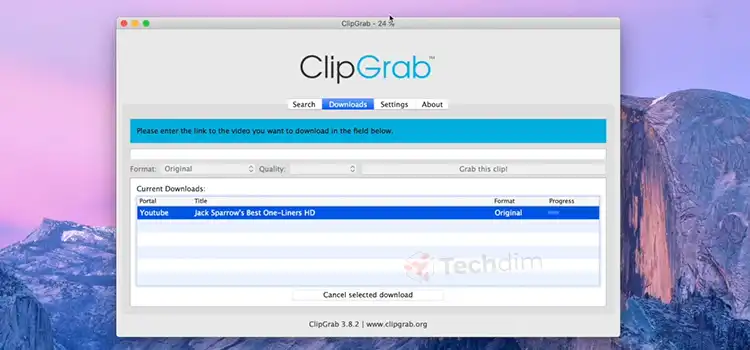Blockchain Technology | Taking Data Rooms into the Modern Era
What is a Blockchain? How is Powering the Virtual Data Room Revolution?
Blockchain can be applied not only to cryptocurrency, but few people know about it. This technology is also very useful for optimizing business processes, managing a company, and increasing the efficiency of employees. With the help of the blockchain, you can improve any process from finding partners to improving data privacy.
If you plunge into the theory, then the blockchain is a kind of virtual chain with information that is stored in space. You can use, transfer and store data not only from one computer but also from a large number of gadgets. The main features of the blockchain are confidentiality, the absence of intermediaries, and the speed of financial transactions.
The functionality of this technology is very beneficial to use in your business, and virtual data rooms, which are basically built on the blockchain, help with this. This brings the greatest benefit to companies with a large number of suppliers, buyers, and franchisees, which must be constantly monitored. Read on and get more information about virtual data rooms!

What Are the Importance of Blockchain Technology and Its Influence on the Best Data Room Providers?
Traditional database technologies pose a number of challenges in accounting for financial transactions. Consider the example of selling real estate. After the transfer of money, ownership passes to the buyer. Both the buyer and the seller can independently record monetary transactions, but neither party can be trusted. After receiving the money, the seller can easily claim that he did not receive it, and the buyer can claim that the money was sent, even if it was not.
To avoid potential legal issues, a trusted third party must monitor and confirm transactions. The presence of this central authority not only complicates the dealing but also creates a single vulnerable point. Both parties will suffer from violations in the central database.
Blockchain anticipates such problems by creating a decentralized, tamper-proof system for recording transactions. In the case of a real estate transaction, it creates a single ledger for the buyer and seller. All transactions must be approved by both parties and automatically updated on their ledgers in real-time. Any discrepancy in the history of transactions will be reflected in the entire ledger. These properties of blockchain technology have made it popular in various sectors. All this information can help you to make correct data room comparisons and choose the best one.
How Does Blockchain Work for Virtual Data Rooms?
Below is a brief overview of the complex mechanism of the blockchain. Such technology automates most of the procedures:
Step 1. Allows You to Confirm the Authenticity and Origin of the Data
Blockchain makes it possible to recognize the starting point of information or a product, so it is easy for a manager to deal with counterfeit items.
So, for retail chains working with a large number of suppliers, blockchain-based virtual data rooms help to increase and strengthen customer confidence. The technology controls the entire supply chain and also evaluates products according to all pre-specified criteria.
Step 2: Reach Consensus
The majority of participants in the distributed data room software must confirm that the recorded transaction is valid. Depending on the type of network, the rules of the agreement may differ, but, as a rule, they are established at the beginning of the procedure.
Step 3: Share the Registry
The system distributes to all participants the latest copy of the central registry.
What Are the Benefits of Blockchain Technology for VDRs?
The blockchain technology used in electronic data rooms has many benefits for business management. Some of them are listed below.
Advanced Security Features
Blockchain provides the high level of security and trust that modern digital transactions require. There is always a risk that someone will manipulate the underlying software to make money dishonestly. But the three principles of blockchain — cryptography, decentralization, and consensus — provide the most secure underlying system that is almost impossible to tamper with. The system has no weak points, and no user will be able to make changes to the transaction records.
Increased Efficiency
Business-to-business transactions can be cumbersome and time-consuming, especially with respect to compliance with third-party requirements. Blockchain features such as transparency and the use of smart contracts make such deals faster and more efficient.
Faster Audit
Companies must be able to generate, exchange, archive, and restore electronic transactions in a secure, verifiable manner. Recordings are stored in chronological order. This transparency of the data due to using data room services greatly speeds up the audit.
Conclusion
Aside from the hype, blockchain data room is strategically important for businesses as it allows cost reduction without disintermediation, as well as the creation of new business models in the long term. And the best data room providers totally understand that. The existing digital infrastructure and the growth of the blockchain-as-a-service (BaaS) offering have reduced costs, and many companies are already testing the technology.
Unfortunately, the faster and more widespread implementation of blockchain technology is hampered by its complexity and lack of competent specialists. However, fierce competition in the global market is forcing companies to force new technologies, which will inevitably lead to the massive spread of blockchain in all spheres of human life in the near future.
Subscribe to our newsletter
& plug into
the world of technology




